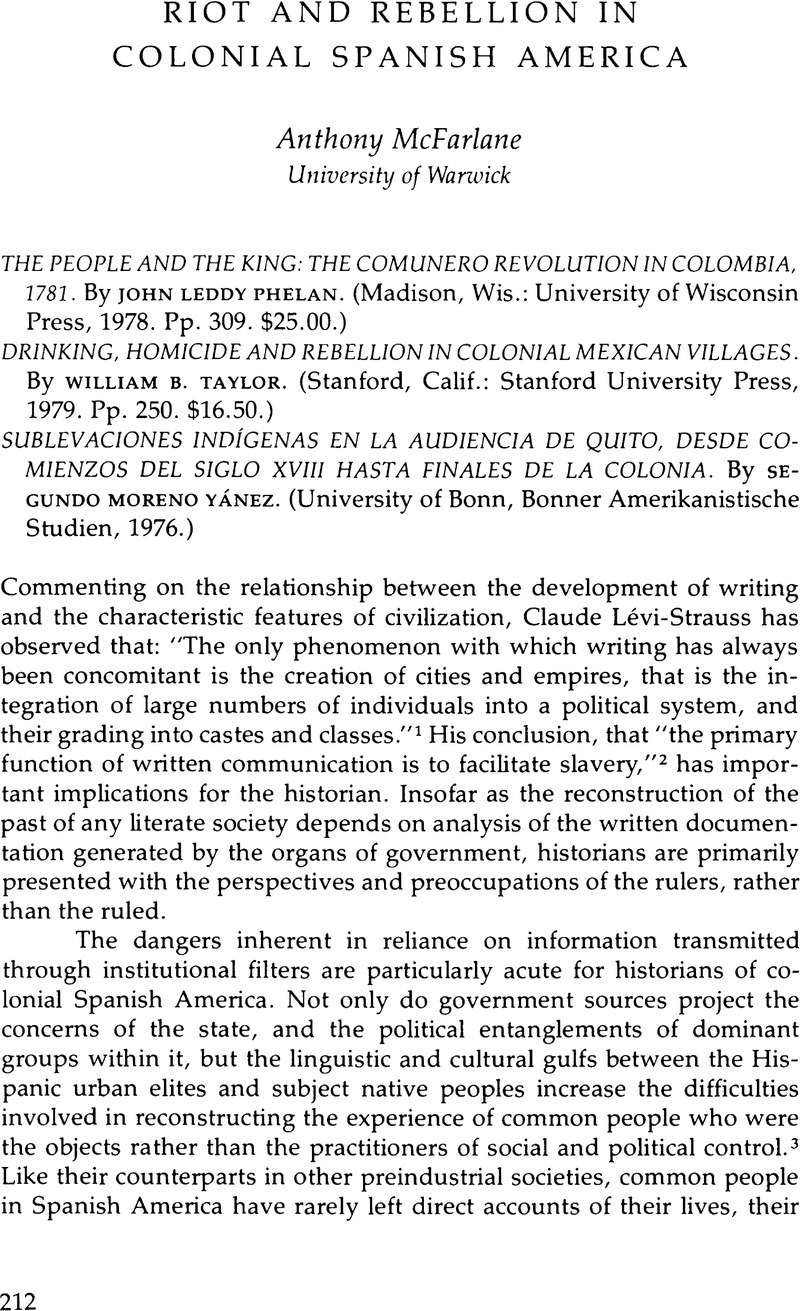No CrossRef data available.
Article contents
Riot and Rebellion in Colonial Spanish America
Review products
Published online by Cambridge University Press: 24 October 2022
Abstract

- Type
- Review Essays
- Information
- Copyright
- Copyright © 1982 by the University of Texas Press
References
Notes
1. Claude Lévi-Strauss, Tristes Tropiques (Penguin Books, 1976), p. 392.
2. Ibid., p. 303.
3. For a more complete statement of these problems, see James Lockhart, “The Social History of Colonial Spanish America,” LARR 7, no. 1 (1972):6–46.
4. E. P. Thompson, “The Moral Economy of the English Crowd in the Eighteenth Century, Past and Present, no. 50 (Feb. 1971):78.
5. A suggestive outline of the character of these ideas and their importance in shaping colonial political attitudes is found in Richard Morse, “The Heritage of Latin America,” in L. B. Hartz, ed., The Founding of New Societies (New York, 1964), pp. 151–59.
6. George Rudé, Ideology and Popular Protest (London, 1980), p. 28.
7. See Leon G. Campbell, “Recent Research on Andean Peasant Revolts, 1750–1820,” LARR 14, no. 1 (1979):30–34.
8. For a fuller analysis of the special role of indios forasteros in Andean rebellions than is given by Moreno Yánez, see O. Cornblit, “Society and Mass Rebellion in Eighteenth-Century Peru and Bolivia,” in R. Carr, ed., Latin American Affairs, St. Antony's Papers, no. 22, Oxford, 1970, pp. 9–44.


